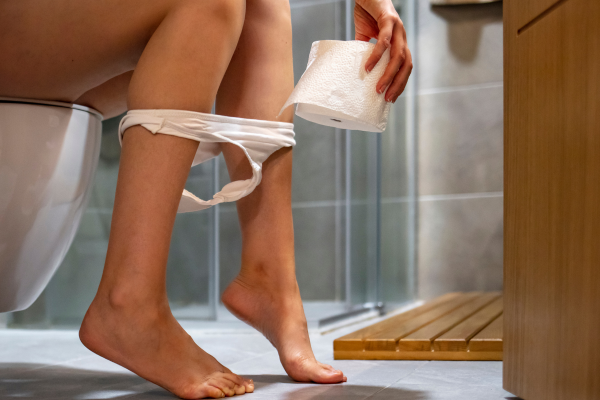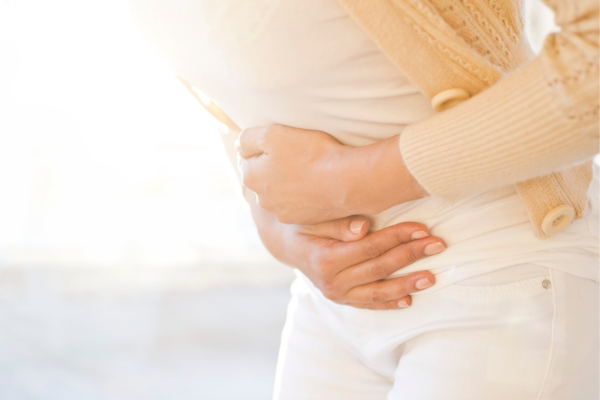Diarrhea, collagen and gut health

The connection between diarrhea, collagen and gut health
Gut health is crucial to our overall health and well-being, and there is a close connection between the functioning of the digestive system and various diseases and conditions that affect the gut. One such condition is diarrhea, which can be caused by a variety of factors, from infections to chronic diseases. Collagen, a protein found throughout the body and particularly concentrated in connective tissue, plays an important role in gut health and can have an impact on how the body copes with and recovers from diarrhea. In this article, we will explore the connection between diarrhea, collagen, and gut health, and how these factors interact with each other.
What is diarrhea?
Diarrhea is a digestive disorder characterized by frequent, watery stools. It is a common symptom of various intestinal disorders and can be acute or chronic. Acute diarrhea usually lasts for a few days and is often caused by infections, such as viruses (such as norovirus or rotavirus) or bacteria (such as Salmonella or E. coli). Chronic diarrhea lasts longer and can be caused by underlying conditions such as inflammatory bowel disease (IBD), celiac disease, irritable bowel syndrome (IBS), or other gastrointestinal disorders.
Diarrhea can lead to dehydration and electrolyte imbalances, making it a serious condition if left untreated. It is therefore important to understand the causes of diarrhea and how the body's mechanisms, including collagen, play a role in managing and restoring gut health.
The role of collagen in the body
Collagen is the most abundant protein in the body and is found in large quantities in connective tissues such as skin, bones, tendons and ligaments. It is also an important component of the walls and mucous membranes of the intestines. Collagen provides strength and elasticity to tissues and is essential for maintaining the integrity of the gastrointestinal tract.
There are different types of collagen in the body, but the most relevant to gut health are type I and type III collagen. These types of collagen make up a large part of the structural support in the gut wall, where they help keep the lining of the gut intact and protected from damage caused by stomach acid, bacteria, and other irritants. Collagen also helps repair damaged tissues and plays an important role in the healing process when there is damage to the gut wall.
Gut health and collagen
The gut is not only a digestive tract but also an important part of our immune system and a place where nutrients are absorbed and toxins are eliminated. A healthy gut barrier is important for protecting against pathogens and for maintaining a balance of microflora, the millions of bacteria that live in our intestines. If the gut barrier is damaged, as can happen in diseases such as inflammatory bowel disease or chronic diarrhea, harmful substances can leak into the bloodstream, leading to inflammation and other systemic problems.
Collagen is essential for maintaining the intestinal barrier function. When the gut is exposed to stress, infection, or inflammatory conditions, collagen production can be negatively affected. This can cause the intestinal walls to become weakened and more permeable, making it easier for bacteria, toxins, and undigested food to leak into the bloodstream. This condition is called leaky gut (or intestinal permeability), and it has been linked to many health problems, including autoimmune diseases, allergies, and inflammatory conditions.
The connection between diarrhea, collagen and gut health
Diarrhea and gut health are closely linked. When diarrhea occurs, either as a result of infections or other illnesses, the gut can become inflamed and damaged. Collagen's role in this process is crucial in maintaining gut integrity and supporting healing.
1. Diarrhea and intestinal barrier damage
In acute or chronic diarrhea, especially if caused by infections or inflammatory diseases, the intestinal mucosa and walls can become damaged. Collagen is an important component of this tissue structure and acts as a support for the cells in the intestinal wall. When collagen production or collagen structures are damaged, the intestinal barrier can be weakened, leading to an increased risk of leaky gut and a reduced ability to protect the body against harmful substances.
In the case of prolonged diarrhea, especially in inflammatory bowel disease such as Crohn's disease or ulcerative colitis, this damage can become chronic and difficult to restore without proper support for collagen production.
2. Collagen and recovery from diarrhea
When diarrhea is caused by infections or other conditions that damage the intestinal walls, collagen is essential for repairing and rebuilding the tissues. Collagen helps form new tissue to cover the damaged areas and supports the healing process needed to restore intestinal function. If the body cannot produce sufficient amounts of collagen, or if the collagen structures are weak, the healing process can be delayed, leading to prolonged diarrhea and an increased risk of complications.
3. Collagen and inflammation
Inflammation is a central factor in both diarrhea and many gut-related diseases. Collagen has been shown to play a role in modulating inflammation in the gastrointestinal tract. In gut problems like diarrhea, inflammation can worsen symptoms and prevent the gut from healing properly. By boosting collagen production, you can reduce inflammation and promote faster healing of gut tissues, which helps relieve diarrhea symptoms and prevent the condition from becoming chronic.
Treatment and prevention
Supporting collagen production through diet can be an important strategy for promoting gut health and improving recovery from diarrhea. Here are some ways to support collagen production and gut health:
1. Diet to support collagen production
Collagen is made up of amino acids, and a diet rich in protein is important to promote collagen production. Foods rich in glycine, proline, and hydroxyproline, the main amino acids that make up collagen, include:
-
Gelatin and bone broth : These are rich in collagen and can provide essential amino acids to promote healing.
-
Protein-rich foods : Meat, fish, eggs, and dairy products are good sources of the amino acids needed for collagen production.
-
Vitamin C : This vitamin is essential for collagen synthesis. Foods such as citrus fruits, peppers, broccoli, and berries are rich in vitamin C and should be included in the diet.
2. Anti-inflammatory diet
A diet rich in anti-inflammatory foods can help relieve inflammation in the gut and support recovery from diarrhea. Foods like fatty fish (rich in omega-3s), vegetables, fruits, and whole grains can help reduce inflammation and support gut health.
3. Probiotics and prebiotics
Probiotics are live microorganisms that can have a positive effect on the intestinal flora and help restore balance in the gut after diarrhea. Prebiotics, found in foods like onions, garlic, and bananas, help stimulate the growth of good bacteria in the gut. By including these foods in your diet, you can support gut health and promote faster recovery from diarrhea.
4. Collagen supplementation
For those who have difficulty getting enough collagen through their diet, collagen supplements can be an effective alternative. These supplements come in a variety of forms, including powders, capsules, and drinks, and can help boost collagen production and support gut healing.
Conclusion
The connection between diarrhea, collagen, and gut health is clear and complex. Collagen plays a central role in maintaining gut integrity, repairing damaged tissues, and modulating inflammation. In the case of diarrhea, especially prolonged or chronic diarrhea, collagen can help restore gut function and promote healing. By supporting collagen production through diet, lifestyle, and supplementation, we can promote gut health and recover more quickly from diarrhea.






